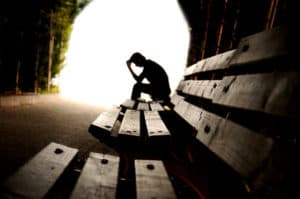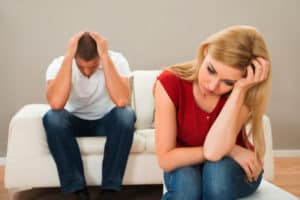Are we Facing an epidemic of Loneliness, Depression, and Suicide?
Even though our awareness to the loneliness and suicide epidemic becomes more acute when celebrities like Kate Spade, and Anthony Bourdain, take their own lives, it has become an epidemic, that has inflicted our culture in such proportions, that some experts are calling it a health epidemic and crisis.
“..with new data released in the U.K. and global efforts garnering traction in the most wide-ranging geographies in the world, it is time to take a step back and refocus on the global epidemic that is suicide. Especially among the world’s young people.”
 Every day, as a psychotherapist, I face that issue with my clients. A pervasive feeling of loneliness, helplessness, and being left out. Loneliness is at an epidemic levels in the US and could rank alongside smoking and obesity as a major threat to public health. Of 20K adults surveyed, nearly 50% said they sometime or always felt, lonely, alone, or left out, and 43% said their relationships weren’t meaningful. The survey found that the worst affected were young American between 18 and 22. (from the Health & Science section of The Week).
Every day, as a psychotherapist, I face that issue with my clients. A pervasive feeling of loneliness, helplessness, and being left out. Loneliness is at an epidemic levels in the US and could rank alongside smoking and obesity as a major threat to public health. Of 20K adults surveyed, nearly 50% said they sometime or always felt, lonely, alone, or left out, and 43% said their relationships weren’t meaningful. The survey found that the worst affected were young American between 18 and 22. (from the Health & Science section of The Week).
In his editorial in The Week, William Falk writes:
“Every year, about 45,000 people commit suicide in the U.S. — twice as many as are killed in homicides. Each of these deaths has its own circumstances, but as Kirsten Powers says this week in USA Today, the steadily rising toll of despair tells us “something is wrong with our culture.” Family and community bonds are disintegrating; loneliness is rampant. At the heart of human experience is a paradox: We are each trapped inside the boundaries of our flesh, alone with our histories, our wounds, our brokenness. Yet our isolation is an illusion — a constriction of perception. All the great spiritual traditions teach the same truth: We are connected in a fundamental way to everyone and to everything”
The scope of this blog can not even begin to cover such a wide, serious, and deep topic of loneliness and suicide. As a child, suicide touched my life, I know that the trauma of someone close to you, choosing to end their life, resonate forever in our lives. Depression and loneliness that leads to suicide thoughts, can be so overwhelming that we may feel that there is no other where to go.
We live in a time when the stress levels are extremely high, the fast pace of our lives leaves us little time for self care, and combine with the sense of disconnection, division, polarity, and alienation, the margin from the edge is at times too narrow. And even though mental health is widely available, and more accessible and acceptable, yet, the sense of alone and loneliness is ever so acute. Asking for help may still seem impossible and unreachable. At times we feel there is no where to turn to.
But as William Falk said at the end of his editorial about Bourdain’s suicide:
“If this master storyteller left us a lesson, it is this: You are not truly alone. People care about you more than you realize. Please don’t leave us. Reach out.”
From my blog: When living hurts – you do not need to do it alone ‘At times, we do not even know why we are feeling anxious, depressed, lonely, alone. It is just there, weighing heavy on our heart. We feel we just want the pain to stop. We want it to go away. We need HELP.’
When Living Hurts, you do not need to do it alone. Reaching out to a friend, someone in the family, a tribe or a community member, can help us carry the load of the grief, the loss, the sadness. Reaching out reminds us that we are not alone. We need to master the courage to say ‘I need HELP’.
At times of troubles we need to be able to turn to our loved ones. Loneliness can intensify helplessness and hopelessness feelings. We can not do life alone.
In my blog, Loneliness: The Silent Epidemic I wrote that It is important to understated that loneliness is not the same as being alone. A person will always have time when they choose to be alone. Rather, loneliness is the feeling of being alone and feeling sad, hopeless and helpless about it. All of us feel lonely some of the time. It is only when we seem trapped in our loneliness that it becomes a real problem.
“What should young people do with their lives today? Many things, obviously. But the most daring thing is to create stable communities in which the terrible disease of loneliness can be cured.” —Kurt Vonnegut
Also from my blog: ‘For many, social media has provided a pseudo escape from the feeling of loneliness. At any time we can reach out to that smart phone, tablet, iPhone, in our purse or pocket, and know we are not ‘alone’, but are we really connecting or are we such ‘scrolling’. wishing for something out there to make us feel good. We scroll mindlessly and aimlessly, only to find out all the things that we are missing… and of course, that will increase loneliness. It seems that the ‘whole world’ is connecting and connected and having fun… ‘except for us’… We feel left out. It is especially serious with teens, where that pressure can add layers of loneliness that leads to depression and anxiety.’
We need to belong, that is one of our most basic needs. We use to exist in tribes, where we knew those around us, and we trusted them to have our back. Now we live in tribes of two, at best. Many or us live in tribes of one.
As Dr. Sue Johnson points out:
‘when we feel isolation and loneliness in our close and intimate relationships, we get scared. When we feel that primary panic and fear of the disconnect from loved ones, our primal need for secure connection becomes alarmed. We then start to act out, protest, and fight for the connection. Isolation and loneliness are danger cues for our primary survival. Our DNA is wired into that connection as a basic safety cue for survival’.
Our DNA codes loneliness and isolation as a threat to our survival.
As a couples therapist, I know that at times the most loneliness we can experience is in a pair bond, that is not working. Stuck in the lonely, cold, isolated, numb, place in a relationship, can be one of the toughest moments couples encounter on a regular basis. There is ‘my person’ ,and I can not reach them…we both feel alone and afraid and we can not talk about it or reach to each other.
In the despair of endless fights and escalated conflicts there is an alarming sense of loneliness that couples experience, bringing them at times to the edge of feeling so hopeless and helpless that at times, the unthinkable solution of leaving for ever, crosses their mind.
What I found helpful for couples in my work as a couples therapist, is learning how to be vulnerable with each other, and reach to each other at times of panic, despair, and loneliness. When a relationship get stuck is when we feel we can not reach to our partner. I try to help couples understand that even when they are fighting, they are protesting for connection. In my practice, and at my Hold Me Tight® Couples Workshops, I help couples risk turning towards each other, with vulnerability and accessibility.
- Affirm strengths in your relationship by developing understanding, communication, and bonding.
- Address negative cycle patterns, and learn why they show up, and how to get out of them.
- Learn how to repair and forgive injuries, and become vulnerable with each other.
- Enhance your emotional, physical, and sexual closeness, and INTIMACY
-
Make sense of your own as well as your partner’s emotions.
-
Forgive injuries that keep you from really opening up with your partner.
-
Communicate your emotional needs for connection.
-
Establish a secure and intimate bond for one another.
-
Restore commitment and hope.
-
Decrease isolation, distance and loneliness.
-
Learn to manage intense and negative emotion.
-
Rebuild safety and trust (where there has been trauma).
I am excited to announce that Owen Marcus, MA, author, workshop facilitator, and TEDxTalk presenter on Masculine Emotional Intelligence, will once again be assisting me leading the workshop. Owen brings with him the width of decades of leading and facilitating men’s groups all over the country, helping men access their masculine vulnerability. Owen’s presence, and his work with couples and men, will enhance this upcoming Hold Me Tight workshop.
Owen’s TEDX talk: What 10,000 Years Of Progress Has Cost | Owen Marcus | TEDxSpokane.
We welcome people of all backgrounds, ages, faiths and sexual orientations.
Please FORWARD the information to anyone you think will benefit from this work, and please call or email me with any questions or for more information.
Please sign up ASAP as space is limited and we are Sold-Out at every workshop.


